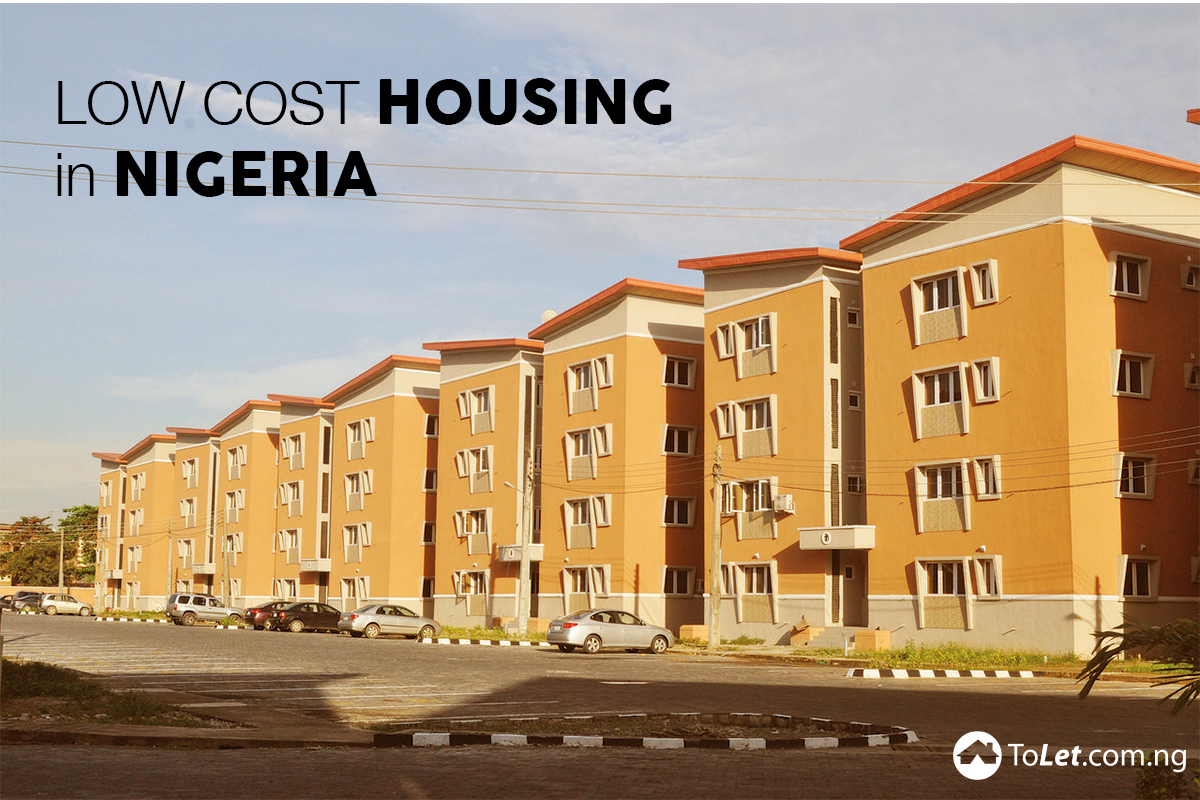
A lease arrangement is a legally binding contract that establishes a long-lasting rental plan in between a property manager and a tenant. It generally lasts for a fixed term, such as one year, and supplies the occupant with unique usage of the residential or commercial property.
- A rental arrangement, on the other hand, is a more versatile plan that permits short-term leasing durations, such as month-to-month arrangements. Unlike a lease arrangement, it does not provide the very same level of stability and may have various conditions.
- The key differences between lease contracts and rental agreements consist of the period of the contract, the level of commitment from both parties, the capability to modify terms, and the legal protections afforded to occupants. It is necessary for both property owners and occupants to understand these differences before entering into an arrangement.

Introduction

In the realm of property arrangements, the distinction between lease and rental arrangements is considerable. Lease arrangements involve a longer-term commitment, normally spanning numerous months and even years, in between a proprietor and renter. On the other hand, rental agreements are shorter-term arrangements, often month-to-month, with less commitment involved. It is very important to understand the subtleties of each contract type to ensure you make an educated choice that aligns with your needs and circumstances.
When considering a lease agreement, it is essential to thoroughly review the conditions as they tend to be more binding. Leases offer a sense of stability and security because they detail the specific duration of the lease, lease quantity, and any additional obligations or restrictions. This can be particularly helpful for individuals or services seeking long-term tenancy and a greater sense of control over the residential or commercial property. However, it might also limit flexibility, as breaking a lease can sustain penalties or legal implications.
Rental contracts, on the other hand, offer more versatility since they typically run on a month-to-month basis. This allows renters to adjust to changing situations or easily end the arrangement with appropriate notice. Rental arrangements often have less limiting terms and might be preferable for much shorter stays or individuals seeking less dedication. However, it is very important to keep in mind that rental agreements may likewise include an absence of stability and the capacity for lease increases at the proprietor's discretion.
To navigate the intricacies of lease and rental contracts efficiently, consider the following recommendations:
1. Thoroughly evaluate the conditions of any contract before finalizing. Pay attention to provisions relating to termination, rent increases, and your rights and responsibilities as a tenant.
2. If you need more versatility, going with a rental contract may be a better choice. This permits simpler shifts and the capability to adjust to altering circumstances.
3. If stability and long-term occupancy are your top priorities, a lease agreement uses security and control over the residential or commercial property.
4. Seek legal guidance or talk to a realty expert to guarantee you completely comprehend the implications of your selected arrangement.
By comprehending the crucial distinctions in between lease and rental arrangements and thoroughly considering your requirements, you can make an educated decision that lines up with your special circumstances and choices.
A Lease Agreement refers to a lawfully binding contract in between the proprietor and the renter, describing the terms of leasing a residential or commercial property. It establishes the rights and duties of both celebrations, including the duration of the lease, rent payment details, and any limitations or responsibilities. This arrangement differs from a Rental Agreement as it typically involves a longer-term commitment, providing more security for both the landlord and occupant.
Additionally, a Lease Agreement often consists of specific clauses relating to maintenance, repair work, and early termination. A Pro Tip: It is crucial for both parties to thoroughly evaluate and understand all the terms before signing a lease contract.
A rental arrangement is a lawfully binding contract in between a property manager and a renter, laying out the conditions of renting a residential or commercial property. It specifies the period of the rental, the lease quantity, and any additional obligations or constraints. This kind of arrangement allows people to inhabit a residential or commercial property for a certain period without owning it. Rental agreements are frequently utilized for residential and business residential or commercial properties and offer legal defense for both parties included. They are necessary to make sure clear interaction, define the rights and commitments of each celebration, and avoid potential conflicts.
Key Differences between Lease Agreements and Rental Agreements
Text: Lease Agreements vs. Rental Agreements: Key Differences to Consider
Lease arrangements and rental arrangements have unique variations that ought to be taken into account. Here are the essential distinctions:
Duration: Lease agreements typically have longer-term dedications, usually covering numerous months or years, whereas rental contracts are more commonly short-term, varying from a few days to a few months.
Renewal: Lease contracts typically offer the choice to renew the agreement after the preliminary term ends, offering stability for both parties included. Rental arrangements, on the other hand, generally concerned an end after the agreed-upon duration without the automated right to renewal.
Flexibility: Rental contracts provide higher versatility, enabling occupants to quickly move out or switch places without being bound by a long-lasting commitment. Lease contracts, however, lock occupants into a fixed duration, making it less versatile to make changes.
Responsibilities: In lease contracts, renters are often accountable for repair and maintenance, while rental agreements typically put these commitments on the property owner. This distinction affects who is responsible for looking after the residential or commercial property.
Rent Increases: Lease arrangements usually define the lease amount for the whole duration, making sure stable payments. Rental arrangements, on the other hand, may enable landlords to increase the lease at any point, subject to local lease control laws.
Termination: Lease contracts typically have rigorous terms for early termination, leading to charges or costs for ending the contract prematurely. Rental agreements may be more lenient, enabling occupants to end the agreement with appropriate notice.

Furthermore, it's important to note that lease contracts often involve homes, while rental contracts may extend to business or holiday residential or commercial properties. Understanding these crucial distinctions in between lease contracts and rental contracts is important when making decisions about long-term commitments or short-term stays.
To ensure a successful arrangement, think about the following suggestions:
Read the arrangement completely: Understand the terms, obligations, and responsibilities outlined in the agreement to avoid any surprises or misunderstandings.
Clarify expectations: Communicate with the landlord or occupant to talk about any specific requirements or conditions that require information before signing the contract.
Seek legal suggestions: If unsure about the regards to the contract, consult with a lawyer specializing in real estate law to ensure all elements remain in your benefit.
Document condition: For both lease and rental contracts, conduct a comprehensive assessment of the residential or commercial property before signing the contract. Document any existing damages or problems to avoid disputes later.
By considering these ideas and comprehending the essential distinctions between lease contracts and rental contracts, people can make well-informed decisions and establish equally helpful plans.
Factors to Consider in Choosing in between Lease Agreements and Rental Agreements
Factors to Consider when Choosing between Lease Agreements and Rental Agreements
Lease agreements and rental arrangements are 2 unique legal documents governing the occupation of a residential or commercial property. In order to make an informed choice in between the 2, there are numerous aspects to think about:
Duration: Determine the length of time you prepare to occupy the residential or commercial property. Lease arrangements generally have longer terms, while rental arrangements use more versatility with much shorter terms.
Cost: Evaluate the financial implications of each alternative. Lease arrangements frequently require a larger upfront payment, such as a down payment, while rental agreements may have lower preliminary costs.
Maintenance Responsibility: Assess the duties for residential or commercial property upkeep. Lease arrangements may consist of responsibilities for renters to keep the residential or commercial property, whereas rental agreements frequently put maintenance duties on the proprietor.
Future Flexibility: Consider your future strategies and possible need for flexibility. Lease arrangements may limit your ability to move or make changes to the residential or commercial property, while rental arrangements permit easier moving.
It is necessary to carefully weigh these aspects and select the choice that lines up with your specific requirements and situations. By completely understanding the implications of each agreement type, you can confidently make a choice that best matches your circumstance.
As you think about elements to identify which contract is most suitable for you, keep in mind that lease contracts frequently include predetermined conditions, while rental contracts use more flexibility and less long-lasting dedication.
True Story:
A buddy of mine was torn between signing a lease agreement or a rental arrangement for their new home. After carefully considering the aspects talked about above, they chose a rental agreement due to its much shorter term and lower preliminary expenses. This decision offered them with the flexibility they preferred, enabling them to easily transfer when an attractive job chance arose in another city.
The difference between lease contracts and rental agreements has been discussed in a professional way. Lease arrangements are long-term agreements that offer more stability and rights for renters, while rental contracts are more flexible however offer fewer securities. Additionally, it is essential to consider the special details of each arrangement before deciding. For circumstances, a lease contract may be more suitable for those preparing to stay in a residential or commercial property for a longer period, while a rental arrangement may be a better alternative for those who require more flexibility. It is always recommended to completely comprehend the terms of any agreement before participating in it.
And now, let me share a true story that exhibits the significance of understanding the differences in between lease and rental agreements.
Five Facts About Lease Agreements vs. Rental Agreements - What's the Difference?
✅ Lease agreements normally have a set term, generally 6 or 12 months, while rental arrangements tend to be month-to-month. (Source: Team Research).
✅ In a lease agreement, both the tenant and proprietor are obligated to satisfy the terms for the whole duration of the lease. (Source: Team Research).
✅ Rental contracts offer more versatility as they permit for modifications in the terms of the arrangement at the end of each monthly term, with proper notification. (Source: Team Research).
✅ A lease contract offers stability for property owners, ensuring a more predictable rental income stream and reducing turnover expenses. (Source: Team Research).
✅ Rental contracts are perfect for renters who can not devote to a long-term lease and choose versatility or shorter periods of occupancy. (Source: Team Research)
FAQs about Lease Agreements Vs. Rental Agreements - What'S The Difference?
What is the primary difference in between a lease agreement and a rental agreement?
A lease agreement is a contract that gives an occupant the right to reside in a residential or commercial property for a set time period, typically covering a 6- or 12-month rental period. On the other hand, a rental arrangement supplies tenancy for a much shorter time period, typically one month, and immediately restores at the end of every month unless otherwise kept in mind.
Can the terms of a lease or rental arrangement be changed?
With a lease agreement, the terms are generally set for the entire period of the contract, and neither the property manager nor the occupant can alter the agreement without composed approval from the other party. However, with a rental agreement, the proprietor and occupant are complimentary to change the terms at the end of each month-to-month period, as long as proper notification treatments are followed.
What are the benefits of a lease contract?
A lease agreement provides stability for both the property manager and the occupant. It offers a predictable rental income stream and lowers turnover expenses for the landlord. For tenants, it ensures a fixed leasing cost for a particular amount of time, supplying security and stability.
What are the downsides of a lease contract?
The primary downside of a lease agreement is that the rental expense stays repaired till the end of the contract, even if residential or commercial property values in the area boost. This means that property managers might lose out on prospective incremental earnings from market boosts during the lease duration.
What are the benefits of a rental arrangement?
A rental arrangement enables more flexibility, specifically when it concerns lease boosts. The proprietor can change the lease rate monthly to align with the existing reasonable market rent. It also appeals to tenants who are looking for short-term leasings, such as students or people in transition.
What are the downsides of a rental contract?
A rental agreement may deter tenants looking for long-term leases due to the potential for frequent rent raises and unsure leasing durations. Landlords need to also think about the costs related to more regular tenant turnover, consisting of marketing, screening, and cleaning expenses. Additionally, it might be challenging to keep the rental inhabited for longer periods of time in areas with lower tenancy rates.
SIGN-UP FOR PAYRENT
- Control when and how occupants pay you.
- Automatically remind tenants when rent is due.
- Accept bank transfers and credit cards
Dave is an experienced real estate investor with over 12 years of experience in the market. Focusing on single-family residential realty, David's tactical method integrates market analysis, financial acumen, and a deep understanding of city advancement patterns to make the most of financial investment returns.
Related Posts:
Delaware Lease Agreement: A 2024 Guide.
How To Add Tenants To An Existing Lease.
Oklahoma Lease Agreements: A 2024 Guide.
Arkansas Lease Agreements: A 2024 Guide.
Tennessee Lease Agreements: A 2024 Guide.
** Blog Article Disclaimer *
This blog site post is offered informative purposes only and does not constitute legal guidance. The material is planned to provide general details and needs to not be trusted as an alternative for professional legal suggestions tailored to your particular situations.
While we aim to keep the details accurate and up-to-date, laws and policies undergo alter, and the legal landscape might differ based upon jurisdiction. Therefore, we make no representations or service warranties regarding the efficiency, accuracy, dependability, or viability of the details included in this short article.

Reading, accessing, or utilizing the info supplied in this blog does not produce an attorney-client relationship in between the reader and the author, and any reliance on the details is at your own threat. If you require legal advice or support, it is essential to speak with a qualified attorney who can consider the specifics of your scenario and offer advice appropriately.
The author and the platform disclaim any liability for any loss or damage sustained by people or entities as an outcome of the information presented in this blog. We suggest seeking advice from a lawyer before making decisions or acting based upon the information provided in this article.








